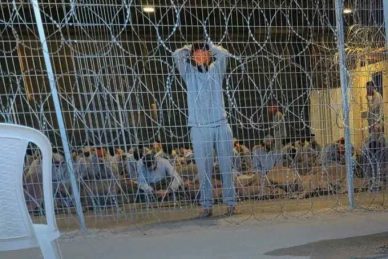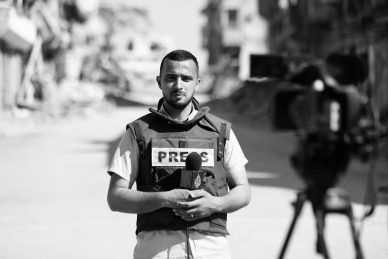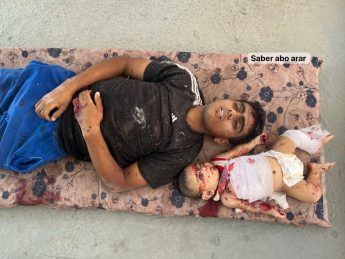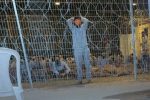GAZA, (PIC)
Across vast agricultural lands and along the coast in central and southern Gaza, tens of thousands of tents have become shelters for hundreds of thousands of Palestinians displaced by the ongoing, bloody Israeli war for the tenth consecutive month.
Once a symbol of the Nakba (catastrophe) and displacement for more than seven decades, the tent has now become a dream for thousands of displaced families in Gaza, despite the harsh living conditions it imposes.
What is it like to live in a tent? This question might seem devoid of emotions and disconnected from the harsh realities of life in Gaza amid the Israeli genocide, which has taken many Palestinian lives but has failed to break their will and determination to cling to their land. However, this question is crucial to understanding the extent of the Palestinian tragedy and resilience.
The Palestinian Information Center (PIC) interviewed several displaced individuals living in tents to narrate part of the story of a people subjected to ethnic cleansing, where even their children raise victory signs amid the rubble.
The quest for a tent
All citizens interviewed by the (PIC) agreed on the difficulty of living in a tent, whether in summer or winter. However, a tent remains a dream for many families since it is easily pitched and relocated due to repeated displacements enforced by the occupation army.
Mohammed Said mentioned that he had to buy a tent for 1,200 shekels ($330) after enduring long periods living in a “khas,” a makeshift shelter made of wooden sticks covered with nylon or any available material.
Said explained to the PIC that a khas does not provide proper shelter and is impossible to move when forced to relocate. Therefore, he left it behind and sought a tent, having to relocate at least twice.
Various organizations provide tents to the displaced, but some are sold, forcing people to buy them due to the lack of alternatives. The tents vary in shape and size, resulting in different prices.
Finding a place to set up the tent
After obtaining a tent, the second challenge is finding a place to set it up, currently limited to areas in Khan Yunis and Deir al-Balah.
Khaled Al-Masri stated that he had to move his tent several times to be close to water sources or aid.
Al-Masri added, “Today, there are camps consisting of a group of tents overseen by associations or initiatives that strive to provide some aid, ensure water access, and establish shared bathrooms. Other tents are set up randomly on agricultural land and near destroyed homes.”
Life in the tents
Living in tents involves tales of pain and suffering, varying according to the family’s resources, number of members, tent location, and the supervising entity.
A small family with a tent in an area receiving aid can adapt better and suffer less compared to an extended family with a small tent in an area lacking services.
With the scorching summer heat, living in a tent among hundreds of others in Gaza feels like living in hell, described Amani Hamdan, highlighting her suffering.
Hamdan told the PIC that she was forced to live in a tent set up on a friend’s land, with her four children, mother-in-law, and disabled sister-in-law.
She added with bitterness, “We had to relocate at least seven times from Khan Yunis since our house was bombed. Initially, we had no tent and suffered until we got one, and its only advantage is its relative ease of relocation amid repeated displacement.”
She continued, “Living in a tent is harsh and difficult, taking us back to primitive life. No walls, no privacy, our voices reach the neighboring tents and theirs reach us.”
Suffering of displaced people in tents
“We barely distribute ourselves inside the tent, part on mattresses and part without, part of the tent holds food supplies. The temperature is scorching, forcing us out of the tent. In winter, we were drenched by rain; now, the heat is unbearable, but thank God for everything,” she added.
“We cook on fire outside the tent, bake bread in a shared oven, have a shared bathroom, and bathe infrequently, needing prior coordination among tent partners. The children start their morning searching for wood, while my husband travels long distances for water, sometimes brought by volunteers. Life has reverted to primitiveness with no kitchen, bathroom, or water faucets.”
What is a tent?
After enduring harsh tent life for months, engineer Mohammed Munir wrote about its meaning, “To burn while sitting inside, to suffocate with no air or cooling means. It’s like a greenhouse during the day.”
He wrote on Facebook, “A tent means living on the ground, separated only by fabric, coexisting with all earth’s insects as you are now their guest.”
Traditional activities become complicated, like taking a nap or a bath, walking comfortably, sitting peacefully, feeling safe, or sleeping without back pain from the hard ground, all dreams now out of reach.
“A tent means no privacy, speaking in whispers inside your tent while your neighbor hears you. With tents set up on sand and agricultural land, it means living with all types of insects, with nearly no hygiene standards.”
The meaning of a tent
Sama Hassan wrote, “A tent means having no wall to lean on, no private life.” She added, “Displacement means not living in safety or stability. As a woman and mother, I experienced displacement from Gaza to its north for false safety until missiles hit the area. We fled to southern Gaza during the first Friday of the war and stayed in Khan Yunis for two months, then moved to Rafah when Khan Yunis was invaded in early December 2023.”
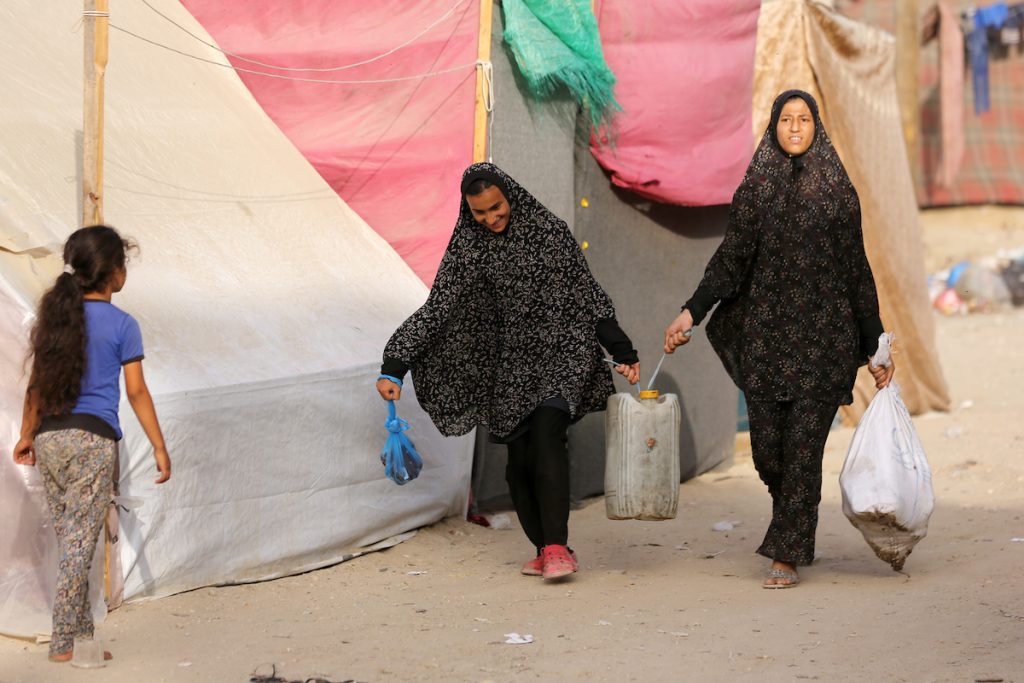
Hassan continued, “With each relocation, I lost a thread of my privacy, becoming more displaced and homeless like thousands in Gaza. A tent is harsher than a shared room in a stranger’s house as the bathroom is either within the tent, set up primitively, or a shared one half a kilometer away, established by a charity. If a woman needs to use it at night, she must wake a man to escort her.”
Life in a tent is hard for women, who must fully dress as they usually do in Gaza despite the heat, lacking freedom of movement. In the tent, they light fires, cook, wash dishes, and store large water containers.
Bathing in a tent involves women surrounding the one bathing with thick blankets, forming a small tent within the main tent, with the woman hurrying before the others tire of holding the blankets.
If living in a tent is already suffering and tragedy, doing so amid the ongoing Israeli genocide and bombings targeting even the worn tents, as happened in Rafah and Khan Yunis, is beyond words.
In recent months, Israeli bombings burned tents and killed dozens, leaving survivors searching for their loved ones’ remains before finding a new place to set up another tent if available, continuing their resilience.


